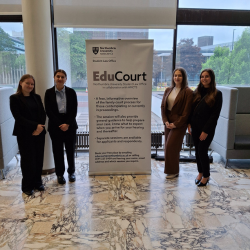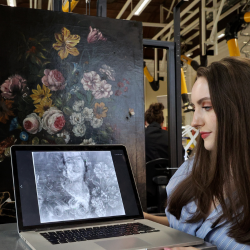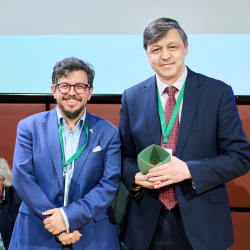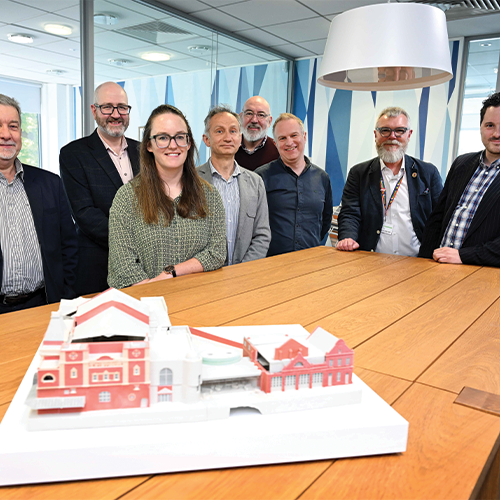Northumbria University and HMCTS Launch Innovative Support Sessions for Litigants in Person in Newcastle Family Court
Northumbria University’s award-winning Student Law Office has partnered with His Majesty’s…
International
Northumbria’s global footprint touches every continent across the world, through our global partnerships across 17 institutions in 10 countries, to our 277,000 strong alumni community and 150 recruitment partners – we prepare our students for the challenges of tomorrow. Discover more about how to join Northumbria’s global family or our partnerships.
View our Global FootprintBusiness
The world is changing faster than ever before. The future is there to be won by organisations who find ways to turn today's possibilities into tomorrows competitive edge. In a connected world, collaboration can be the key to success.
More on our Business ServicesResearch
Northumbria is a research-rich, business-focused, professional university with a global reputation for academic quality. We conduct ground-breaking research that is responsive to the science & technology, health & well being, economic and social and arts & cultural needs for the communities
Discover more about our ResearchAlumni
Northumbria University is renowned for the calibre of its business-ready graduates. Our alumni network has over 246,000 graduates based in 178 countries worldwide in a range of sectors, our alumni are making a real impact on the world.
Our Alumni/404 cannot be found.
Please use the form below to report the broken link.

Northumbria University’s award-winning Student Law Office has partnered with His Majesty’s…

An international team of researchers have been awarded over £1 million in funding to explore…

A team of talented marketing students from Northumbria University’s Newcastle Business School…

Two PhD researchers from Northumbria University have been awarded Venice Fellowships by the…

Northumbria University has unveiled a new state-of-the-art X-ray radiography instrument – an…

A biodegradable battery developed by researchers at Northumbria University has won a major…

On Thursday 22nd May, Innovate UK marked 50 years of Knowledge Transfer Partnerships (KTPs)…

Drill Hall Lecture Theatre
-

Northumbria University
-

Lecture Theatre 401
-

Squires Workshops
Back to top